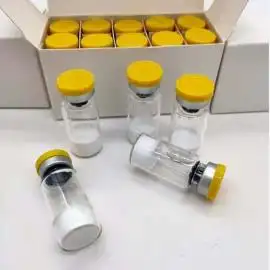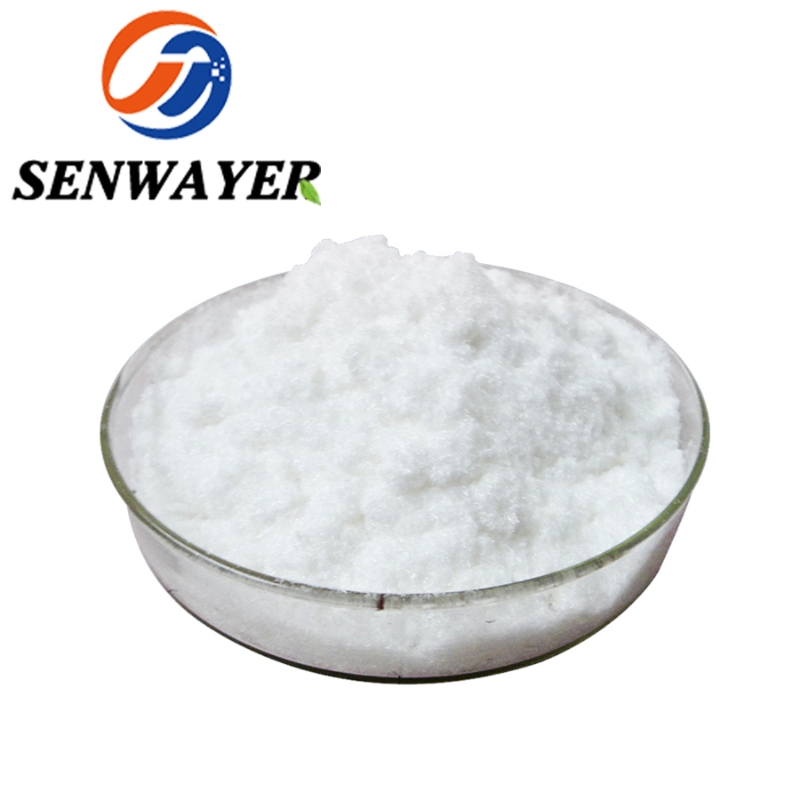-
Categories
-
Pharmaceutical Intermediates
-
Active Pharmaceutical Ingredients
-
Food Additives
- Industrial Coatings
- Agrochemicals
- Dyes and Pigments
- Surfactant
- Flavors and Fragrances
- Chemical Reagents
- Catalyst and Auxiliary
- Natural Products
- Inorganic Chemistry
-
Organic Chemistry
-
Biochemical Engineering
- Analytical Chemistry
-
Cosmetic Ingredient
- Water Treatment Chemical
-
Pharmaceutical Intermediates
Promotion
ECHEMI Mall
Wholesale
Weekly Price
Exhibition
News
-
Trade Service
ipilimumab is a monoclonal antibody drug used to treat cancer.
It is marketed under the brand name Yervoy® by Bristol-Myers Squibb.
ipilimumab binds to the protein cytotoxic T-lymphocyte antigen 4 (CTLA-4) on T cells, which helps to inhibit the immunosuppressive effects of CTLA-4 and enhance the immune response against cancer cells.
The ipilimumab molecule is a genetically engineered antibody that is produced in a laboratory.
It is composed of two identical heavy chains and two identical light chains, which are held together by disulfide bonds.
The heavy chains and light chains are made up of different regions, including the variable regions that are responsible for recognizing and binding to specific proteins, such as CTLA-4.
The production of ipilimumab involves a number of steps, including the cloning of the gene that encodes for the antibody, the expression of the gene in a host cell, and the purification of the resulting antibody.
The first step is to isolate the gene that encodes for the desired antibody, which is typically done through PCR (polymerase chain reaction) or other molecular biology techniques.
Once the gene has been isolated, it is inserted into a plasmid vector, which is a small circular piece of DNA that can be easily manipulated in the lab.
The next step is to transfect the plasmid into a host cell, which is typically a Chinese hamster ovary (CHO) cell line.
The host cell is a type of cell that can be used to produce proteins, such as antibodies, in large quantities.
Once the plasmid has been introduced into the host cell, the cell begins to express the antibody.
The cell culture is then monitored to ensure that the cells are healthy and the antibody is being produced correctly.
After the cell culture is established, the antibody-containing culture supernatant is harvested and the antibody is purified.
This typically involves several step such as filtration, centrifugation and chromatography.
The purified ipilimumab is then formulated into a final product that is ready for use in patients.
ipilimumab is given as an intravenous infusion, and the dosage and administration depend on the patient's weight, overall health, and the type and stage of cancer being treated.
The most common side effects of ipilimumab include fatigue, diarrhea, and skin rash.
More serious side effects can also occur, including immune-related adverse events and severe infusion reactions.
ipilimumab is an innovative treatment for cancer, and its use has led to improved outcomes for patients.
However, it is also an expensive drug, and its cost and the potential side effects are an important consideration for patients and healthcare providers.
Additionally, ipilimumab is not effective for all patients, and it is important to carefully evaluate patient's health and medical history before treatment.
Overall, ipilimumab is a monoclonal antibody drug that is designed to enhance the immune response against cancer cells.
It is a complex drug that is produced through a series of steps, including the cloning of the gene that encodes for the antibody, the expression of the gene in a host cell, and the purification of the resulting antibody.
The drug is given as an intravenous infusion and its use has led to improved outcomes for patients with cancer.
But it is also an expensive drug and its cost and potential side effects are an important consideration for patients and healthcare providers.







